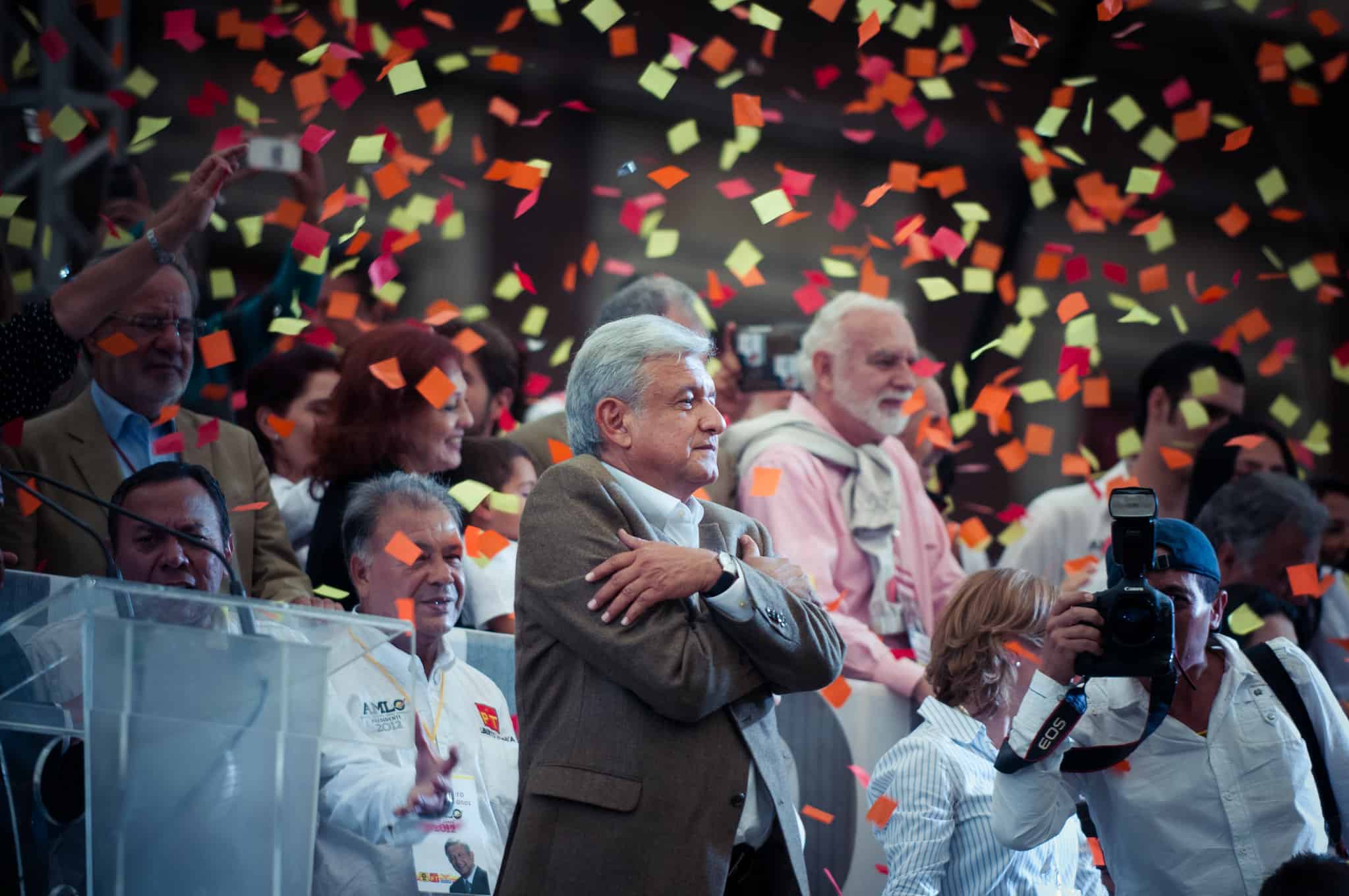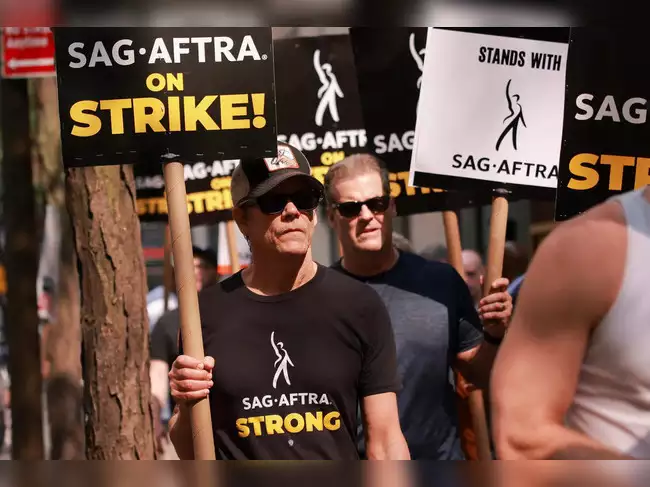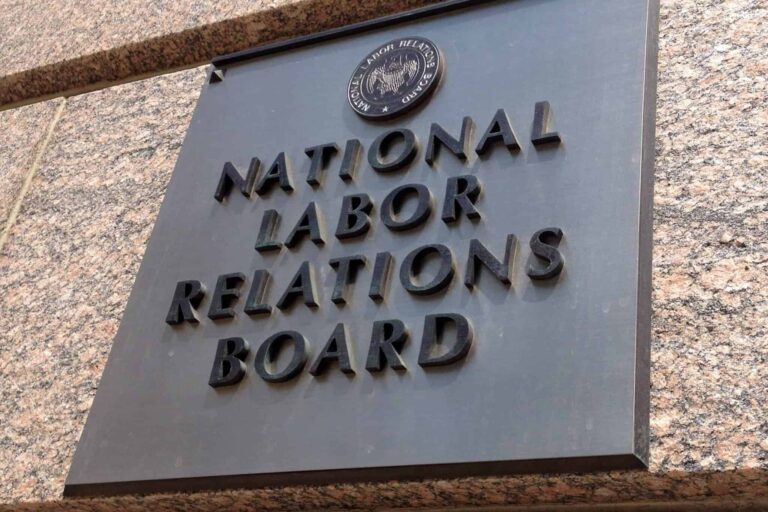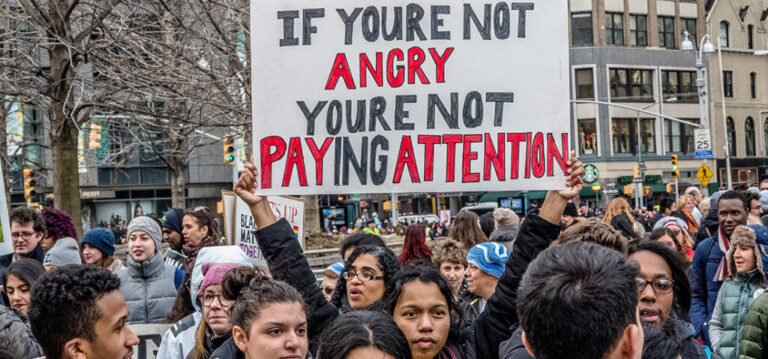
Jason Vazquez is a staff attorney at the International Brotherhood of Teamsters. He graduated from Harvard Law School in 2023. His writing on this blog reflects his personal views and should not be attributed to the IBT.
In 2018, Andrés Manuel López Obrador — known as AMLO — won election to the Mexican presidency in a landslide. A leftist populist, AMLO has cast himself as a champion of the poor, denounced Mexico’s “monstrous inequality,” and pledged to redistribute wealth to the working class and eliminate political corruption. His victory, acclaimed by progressive leaders across Latin America, was heralded as a “political earthquake” that handed “a sweeping mandate” to “the most left-wing government in [Mexico’s] history.” In his inaugural address, AMLO promised to transform the Mexican political economy and articulated what he insisted would serve as the orienting principle for his ascendant movement: por el bien de todos, primero los pobres (for the good of all, the poor first).
Following the Mexican Revolution in 1910, which transformed the country’s feudal economic order into a nascent capitalist system, Mexico was ruled for decades by the Partido Revolucionario Institucional, or the PRI, an authoritarian and endemically corrupt political party controlled by the nation’s plutocrats. Devastating neoclassical economic reforms descended upon the Mexican political economy in the early 1980s, as ruling elites deregulated industries, privatized state-owned sectors of the economy, dismantled existing social services, and endorsed trade agreements that privileged capital and subjected Mexican farmers and workers to intense exploitation at the hands of transnational corporations.
Three decades of market fanaticism destabilized what was already in many ways a deeply oppressive society. Today, Mexico has become one of the most unequal countries in the world. One percent of Mexicans own more than 40 percent of the nation’s wealth, while nearly half of the country’s population is poor — including millions who manage to subsist on less than $2 a day. Mexico’s working class endures the longest hours and nearly lowest wages among OECD nations. Organized criminal syndicates entirely control some regions of the country, and systematic political corruption scandals have become remarkably routine.
AMLO emerged into this troubled sociopolitical landscape as an outspoken opponent of the reigning neoliberal regime, to which he unequivocally attributed much of Mexico’s socioeconomic degradation. “The neoliberal economic policy has been a disaster,” he declared in blistering campaign speeches. “Because of the tremendous concentration of income in a few hands, the majority of the population has become impoverished.” Exhausted and embittered by decades of rising poverty, violence, and corruption, Mexican voters, particularly the young and the poor, surged to the polls in unprecedented numbers to repudiate the reactionary ideology that had orchestrated the dismemberment of their society and to embrace AMLO’s promise of national rejuvenation. This wave of popular disaffection and progressive enthusiasm swept AMLO into Los Pinos, while his newly formed political party, Morena, won majorities in both federal legislative chambers.
*
Just over two years into his presidency, AMLO’s approval rating remains one of the highest among global leaders, as his administration has adopted measures far more ambitious than any of his predecessors to reduce the country’s staggering levels of economic inequality. In his first month as President, for instance, AMLO’s government raised the national minimum wage by fifteen percent, and then, a month later, doubled it for workers on the northern border. His administration has also restructured the national budget to introduce a slate of new social programs. As a result of these and other progressive reforms, the aggregate income among Mexican workers increased nearly six percent during AMLO’s first year in office — more than double that for the entire term of his predecessor. Even more dramatically, the poorest twenty percent of Mexicans increased their income by nearly a quarter during that period.
Nonetheless, the charismatic Mexican president has at times faced withering criticism from voices on the left. Much of it, to be sure, is far from baseless. His administration has declined to increase taxes on the wealthy and in some places introduced grinding austerity measures. He has allied himself with Donald Trump and, at the behest of the disgraced former U.S. President, deployed the Mexican military to suppress illegal immigration. He has largely disregarded pandemic suffering and refused to impose lockdowns to limit the virus’ spread (or even wear a mask in public). Most strikingly, AMLO’s administration approved and even praised the updated version of the North American Free Trade Agreement, a hallmark of the neoliberal regime that ravaged Mexico’s working class.
AMLO’s decades-long crusade against inequality, poverty, and corruption, together with his autocratic tendencies, has long rendered him one of Mexico’s most admired, derided, and controversial public figures. And, in short, his administration’s record thus far, plagued by conflicting impulses, is consistent with this reputation. However, irrespective of the merits of his other actions, AMLO engineered passage of a major labor law reform in early 2019 that has the potential to empower Mexico’s workers and reshape its political economy.
*
Before the labor law overhaul, Mexico was one of the few countries that failed to guarantee collective bargaining rights to its millions of working people. Following the Revolution, PRI leaders were determined to assert control over Mexico’s restive labor movement, which they viewed as a threat to the newly established social order. They established a regime-aligned labor federation, the Confederation of Mexican Workers, which sharply limited the unions it recognized. Then, for decades, PRI elites appointed loyal lieutenants to lead employer-dominated labor organizations, derisively dubbed “charros,” who colluded with management to negotiate illegitimate “protection contracts” which were often designed to suppress wages. Many U.S. firms exploited this arrangement to secure ghost contracts covering new plants they were constructing in Mexico before they hired a single employee. Shockingly, nearly 90 percent of the collective bargaining agreements governing Mexican workplaces were negotiated without any involvement or consent on the part of employees. Labor activists attempting to challenge this system faced intimidation, arrest, and even assassination.
The reform legislation, enacted in May 2019, attempts to democratize Mexico’s labor movement. It grants Mexican workers the right to elect union officials by secret ballot and to ratify negotiated collective bargaining agreements. In addition, the statute mandates that all existing CBAs must be submitted to a legitimation vote, establishes an independent federal agency to oversee union elections, and creates a new system of specialized labor courts. Mexican labor leaders celebrated these provisions as “a huge opportunity to bring democracy to the union movement in Mexico.”
Despite the new law’s promise, however, overcoming the politically-entrenched charros and genuinely empowering Mexico’s working class remains an arduous task. Although the Independent Mexico Labor Expert Board (IMLEB) recognized in its interim report, issued at the end of last year, that “substantial progress” had been made in implementing the new legislation, the agency conceded that enforcement has been hampered by inadequate resources and official mismanagement. So far less than one percent of Mexico’s existing CBAs have undergone legitimation votes. Indeed, one of the first major attempts at invoking the reform legislation to displace a traditional company union demonstrates what many view as its limited capacity to inaugurate a new era of democratic unionism. At a Bridgestone tire factory in Monterrey, employees trying to organize an independent union were subjected to threats and harassment and, after officials bungled the election, the union was decisively defeated. In short, as IMLEB’s report acknowledges, “many of the changes promised to improve the lives of workers … remain to be implemented.” Nonetheless, the report concludes, the Mexican government has “continued with its efforts to build the institutions required … and to begin to put new and expanded rights into the hands of Mexican workers.”










Daily News & Commentary
Start your day with our roundup of the latest labor developments. See all
December 13
In today’s News & Commentary, the Senate cleared the way for the GOP to take control of the NLRB next year, and the NLRB classifies “Love is Blind” TV contestants as employees. The Senate halted President Biden’s renomination of National Labor Relations Board Chair Lauren McFerran on Wednesday. McFerran’s nomination failed 49-50, with independents Joe […]
December 11
In today’s News and Commentary, Biden’s NLRB pick heads to Senate vote, DOL settles a farmworker lawsuit, and a federal judge blocks Albertsons-Kroger merger. Democrats have moved to expedite re-confirmation proceedings for NLRB Chair Lauren McFerran, which would grant her another five years on the Board. If the Democrats succeed in finding 50 Senate votes […]
December 10
In today’s News and Commentary, advocacy groups lay out demands for Lori Chavez-DeRemer at DOL, a German union leader calls for ending the country’s debt brake, Teamsters give Amazon a deadline to agree to bargaining dates, and graduates of coding bootcamps face a labor market reshaped by the rise of AI. Worker advocacy groups have […]
December 9
Teamsters file charges against Costco; a sanitation contractor is fined child labor law violations, and workers give VW an ultimatum ahead of the latest negotiation attempts
December 8
Massachusetts rideshare drivers prepare to unionize; Starbucks and Nestlé supply chains use child labor, report says.
December 6
In today’s news and commentary, DOL attempts to abolish subminimum wage for workers with disabilities, AFGE reaches remote work agreement with SSA, and George Washington University resident doctors vote to strike. This week, the Department of Labor proposed a rule to abolish the Fair Labor Standards Act’s Section 14(c) program, which allows employers to pay […]